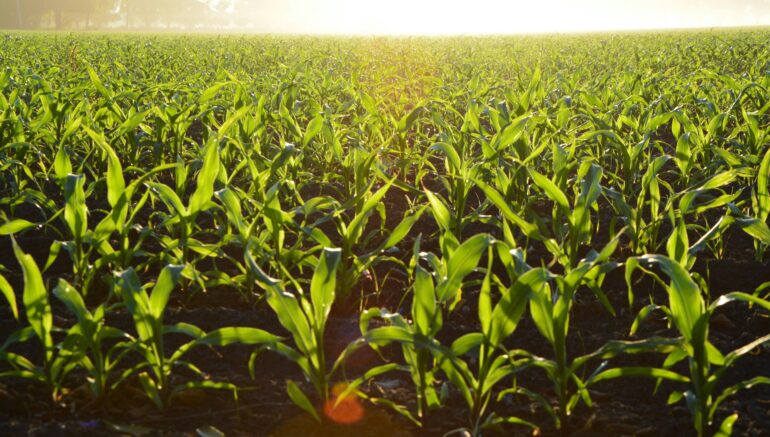
January 26, 2025
How Technology is Revolutionizing Modern Farming?
In recent years, technology has dramatically reshaped the way farming is done, bringing about more efficient, sustainable, and productive agricultural practices. From Artificial Intelligence (AI) to drones and automated irrigation systems, technology is playing a pivotal role in the modern farming landscape. In this blog, we will explore how these advancements are revolutionizing the industry and helping farmers meet the growing demands of food production while minimizing environmental impact.
Artificial Intelligence (AI) in Agriculture:
AI is one of the most exciting technological advancements in farming. Through machine learning and data analysis, AI is helping farmers make smarter decisions that improve yields, reduce waste, and increase operational efficiency. Here’s how AI is making a difference:
1. Predictive Analytics:
AI can analyze large amounts of data collected from sensors, weather stations, and other sources to predict the best times to plant, irrigate, and harvest crops. This allows farmers to optimize their operations and make decisions based on data-driven insights, ultimately leading to better yields and reduced resource usage.
2. Crop Monitoring and Disease Detection:
AI-powered systems are capable of continuously monitoring crops for signs of diseases, pests, or nutrient deficiencies. By identifying potential issues early, farmers can take proactive measures, reducing the need for chemical pesticides and fertilizers and minimizing environmental damage.
3. Automation and Robotics:
AI is also used in autonomous farming equipment, such as robotic harvesters, which can perform tasks like planting, weeding, and harvesting with minimal human intervention. This reduces labor costs and increases efficiency on farms.
4. Drones: Aerial Data Collection and Precision Farming:
Drones are another game-changer in modern farming. Equipped with high-resolution cameras and sensors, drones provide valuable aerial imagery and data that help farmers monitor and manage their crops more effectively. Here’s how drones are contributing to precision farming:
A. Aerial Crop Monitoring:
Drones offer farmers a bird’s-eye view of their fields, capturing detailed images that can reveal crop health, soil conditions, and moisture levels. This real-time data enables farmers to identify problem areas and target interventions precisely, reducing input costs and improving yields.
B. Field Mapping and Soil Analysis:
Drones can conduct field mapping, allowing farmers to create detailed maps of their fields that highlight variations in soil health, moisture, and temperature. This data can guide decisions on irrigation, fertilization, and planting patterns, optimizing the use of resources and enhancing crop productivity.
C. Precision Spraying:
Drones can be equipped with sprayers to apply pesticides, herbicides, or fertilizers with pinpoint accuracy. This precision minimizes waste, reduces chemical runoff, and ensures that crops receive the appropriate amount of treatment.
D. Automated Irrigation Systems:
Water is one of the most valuable resources in agriculture, and efficient irrigation systems are crucial to conserving it. Automated irrigation systems are transforming the way farmers manage water usage:
1. Smart Irrigation Controllers: Automated irrigation systems equipped with smart controllers use weather data, soil moisture levels, and crop needs to determine the optimal amount of water for each field. This reduces water waste and ensures that crops receive just the right amount of moisture, leading to healthier plants and higher yields.
2. Drip Irrigation: Drip irrigation, which delivers water directly to the plant roots through a network of tubes and emitters, is one of the most efficient watering methods. Automated drip irrigation systems ensure that water is delivered precisely where and when it’s needed, minimizing evaporation and runoff.
3. Water Conservation: Automated irrigation systems help conserve water by using data to optimize irrigation schedules, reducing the amount of water used and preventing overwatering. This is particularly important in regions facing water scarcity, as it enables farmers to produce more with less.
The integration of technology into farming has not only improved productivity but has also made agriculture more sustainable. By using AI, drones, and automated irrigation systems, farmers can reduce their environmental footprint, optimize resource use, and increase efficiency. These technologies enable farmers to meet the global demand for food while preserving the planet for future generations.
As the agriculture industry continues to evolve, technology will play an even more crucial role in shaping the future of farming. The potential for innovation is limitless, and by embracing these advancements, farmers can drive positive change in the industry while ensuring a more sustainable and productive future.





